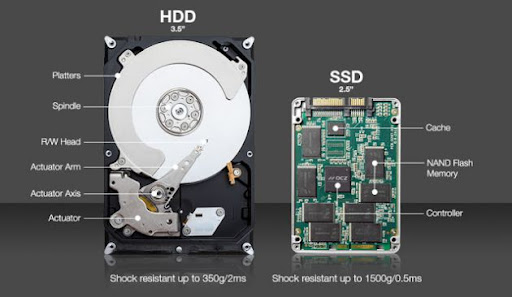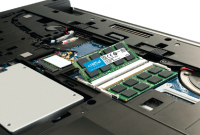How To Increase PC Performance – In today’s digital age, our computers play a crucial role in our daily lives. Whether for work, entertainment, or communication, a sluggish PC can be incredibly frustrating. If you’ve been wondering how to boost your PC’s performance, you’ve come to the right place. In this comprehensive guide, we’ll explore five expert-recommended methods to supercharge your computer’s speed and efficiency.
5 How To Increase PC Performance: A Comprehensive Guide
1. Clean Up Your Hard Drive
Say Goodbye to Clutter
Over time, your hard drive accumulates unnecessary files and data that can slow down your PC. Start by performing a thorough disk cleanup. Remove temporary files, old downloads, and applications you no longer use. This will free up valuable space and improve your computer’s responsiveness.
2. Optimize Startup Programs
Streamline Your Boot Process
Does your PC take forever to start up? Chances are, you have too many programs launching at startup. To remedy this, access your computer’s startup settings and disable unnecessary programs. This will lead to a faster boot time and a more efficient PC.
3. Upgrade Your Hardware
Boost Performance with Hardware
If your PC still lags after cleaning up and optimizing, it might be time for a hardware upgrade. Consider adding more RAM, replacing your hard drive with a solid-state drive (SSD), or upgrading your graphics card. These improvements can significantly enhance your PC’s speed and overall performance.

4. Keep Your Software Updated
Stay Current for Peak Performance
Outdated software, including your operating system and drivers, can be a major cause of performance issues. Ensure that you regularly update your software to benefit from bug fixes, security patches, and enhanced performance.
5. Defragment Your Hard Drive
Organize Your Data
If you’re still using a traditional hard drive, defragmentation can help. Over time, files can become fragmented, causing longer load times. Running a disk defragmentation can rearrange data for quicker access, resulting in improved PC performance.
5 How To Increase PC Performance
Now, let’s delve into the heart of the matter and explore five practical methods to increase your PC’s performance.
Clean Your PC Internally
Dust and debris can accumulate inside your computer, leading to overheating and reduced performance. Regularly clean your PC’s interior to prevent these issues and maintain optimal performance.
Manage Your Browser Tabs
Having too many tabs open in your web browser can consume a significant amount of RAM. Close unnecessary tabs to free up system resources and improve browsing speed.
Uninstall Unnecessary Software

Take a critical look at the software installed on your PC. If you rarely use certain applications, uninstall them to free up space and resources.
Adjust Visual Effects
Windows offers various visual effects that can be demanding on your PC’s hardware. Adjusting these settings to a more basic level can boost performance without sacrificing functionality.
Scan for Malware and Viruses
Malware and viruses can seriously degrade your PC’s performance. Use reliable antivirus software to scan and remove any malicious threats.
How To Increase PC Performance: FAQs
Q: Can I upgrade my laptop’s hardware to increase performance? A: Yes, many laptops allow for RAM and SSD upgrades, which can significantly enhance performance. Check your laptop’s specifications and consult a professional if needed.
Q: How often should I clean the interior of my PC? A: Aim to clean your PC’s interior every 3-6 months, depending on your environment. Dust buildup can vary, so monitor your PC for signs of overheating.
Q: Are there any free software programs to help with PC optimization? A: Yes, there are several free PC optimization tools available, such as CCleaner and Malwarebytes. These can help you clean up your PC and improve its performance.
Q: Is it safe to adjust visual effects on my PC? A: Yes, adjusting visual effects is safe and can lead to performance improvements. Windows provides options to customize these settings without compromising your PC’s functionality.
Q: What should I do if my PC is still slow after following these steps? A: If your PC remains slow, consider seeking professional assistance. There may be underlying issues that require expert diagnosis and repair.
Q: How long does a disk defragmentation process take? A: The duration of a disk defragmentation process varies depending on the size and fragmentation level of your hard drive. It can take anywhere from a few minutes to several hours.
Conclusion
By following these tips and methods, you can significantly increase your PC’s performance and enjoy a smoother computing experience. From cleaning up your hard drive to upgrading hardware, these expert-recommended strategies will help you optimize your PC for peak performance. Say goodbye to sluggishness and hello to a faster, more efficient computer.


